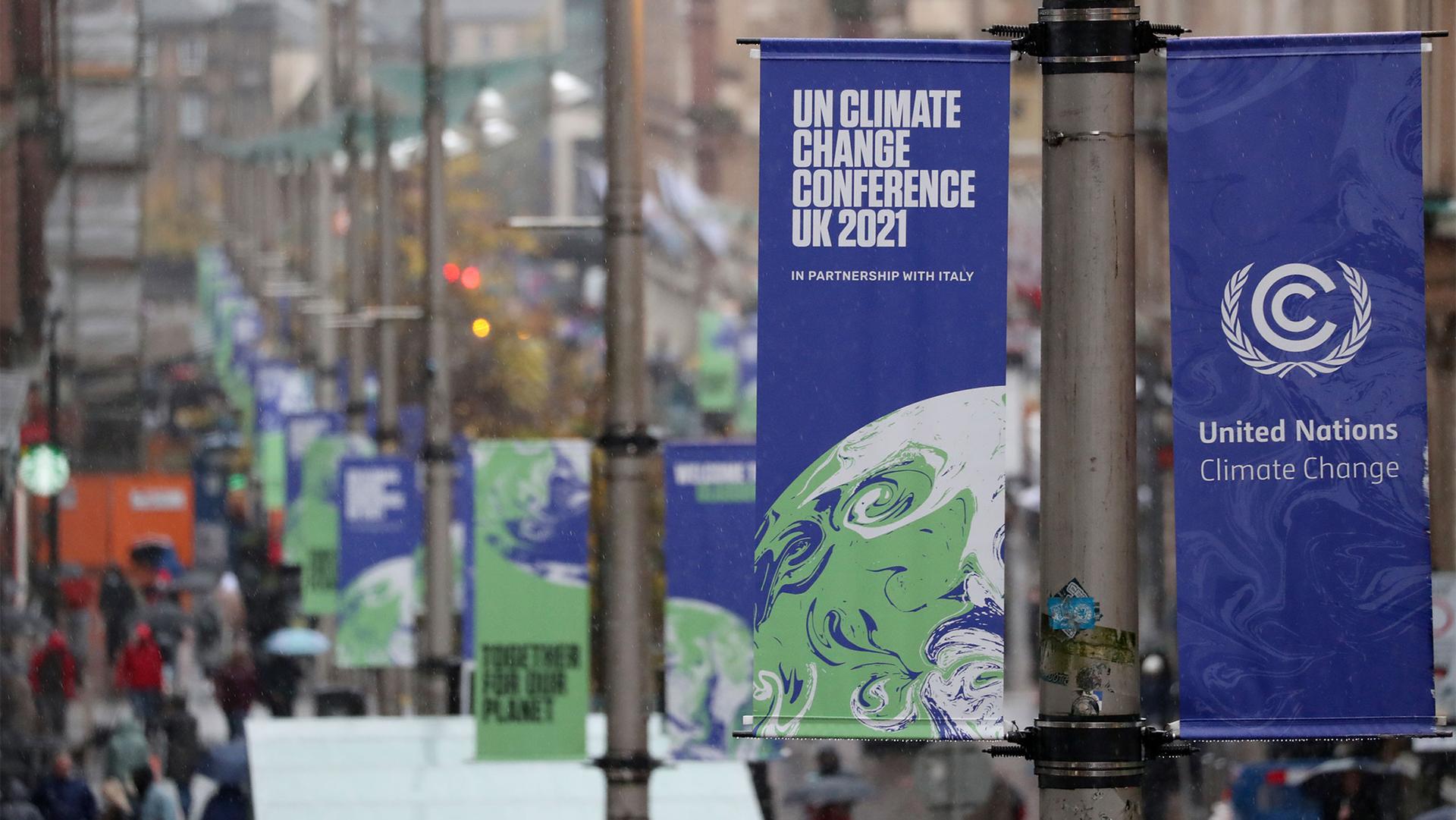Last month, at the UN climate summit in Glasgow, Scotland, 197 countries signed on to phase out “inefficient” fossil fuel subsidies.
At the summit, the US climate envoy, John Kerry, called these subsidies “a definition of insanity,” noting that they “feed the very problem we’re here to try to cure.”
His counterpart from the Marshall Islands, Tina Stege, added that they “are paying for our own destruction.”
The United Nations Development Programme estimates that governments spend an average of $423 billion a year on these subsidies, which often take the form of tax breaks or price caps that make it cheaper to either produce or buy coal, oil or gas.
These subsidies are widely recognized as a roadblock to transitioning to cleaner energy by international organizations, including the UN — which launched a splashy campaign against them this fall — the International Monetary Fund and the International Energy Agency.
But they’ve proven hard to ditch.
A mention of “fossil fuels” in the Glasgow climate pact is seen as symbolically important since it represents the first time in the 25-year history of UN climate talks that the term was included in the text of a final agreement.
“It’s very significant,”said Ipek Gençsü, a senior research fellow at the London-based global think tank Overseas Development Institute.
The fact that they’re committing to phase out [fossil fuel] subsidies is a major achievement.”
“The fact that the words fossil fuels are in there is a major achievement, and the fact that they’re committing to phase out their subsidies is a major achievement.”
But the agreement calls only for the phasing out of “inefficient” subsidies, which significantly weakens the practical potential of the pledge. For starters, there’s no definition of what inefficient actually means.
“And governments have hidden behind this word in the past. So, G-20 countries made a similar commitment back in 2009, and so far, the progress has not been very good,”Gençsü said.
In the US, oil and gas companies say tax incentives for exploration and drilling are essential to keeping low-cost domestic energy flowing.
Related: Why COP26 is the ‘last, best hope’ for fighting climate change
But critics say the subsidies just encourage more development of fuels that should be phased out instead.
According to the International Energy Agency, for the world to have a chance to limit warming to 1.5 degrees Celsius above preindustrial levels, all new investments in fossil fuel energy projects would need to stop this year.
“Basically, we should not be building new wells at this point, which means taking the extra step of using public money to help build those wells is extra ridiculous,” said Bronwen Tucker, who leads work on public finance at the advocacy organization Oil Change International.
In developing countries, subsidies often help make electricity or gas for cars cheaper for consumers.
Energy economist Vibhuti Garg, at the International Institute for Sustainable Development, said India subsidized its electricity sector to the tune of $18.2 billion in fiscal year 2020.
Some of that money helped electrify rural households that used to rely on kerosene lamps for light.
“Consumers need subsidized power to help them shift from consumption of polluting fuels to better electricity generation and consumption.”
“So, definitely such consumers need subsidized power to help them shift from consumption of polluting fuels to better electricity generation and consumption,” Garg said.
But globally, and in India, these subsidies actually help wealthier people the most because they use more electricity. A review cited by the International Monetary Fund found that the richest 20% of households receive six times more in subsidies than the poorest 20%.
“So, that kind of blanket subsidy being given to everyone should be done away with, and subsidies should be targeted better,” Garg said.
But there’s significant political pressure for politicians to keep energy prices low. (President Joe Biden recently released petroleum from the nation’s strategic oil reserves.) Plus, abruptly removing subsidies has triggered backlash in the past.
Related: COP26 made incremental progress but failed to deliver on ‘transformational’ change, negotiators say
In 2012, Nigeria saw a nationwide strike after the government removed gasoline subsidies, causing prices at the pump to skyrocket.
Street protests also erupted in Ecuador in 2019 for the same reason.
To win over the public and prevent surging energy prices in the event of subsidies being removed, Gençsü suggests that subsidy funds could be redirected toward money-saving, household energy-efficiency programs or rooftop solar alternatives.
“Another thing that’s really important is making sure that people know that if their subsidies are removed, then these funds are channeled to other good uses.”
“Another thing that’s really important is making sure that people know that if their subsidies are removed, then these funds are channeled to other good uses,”Gençsü said.
It will be hard for national governments to make good on last month’s pledge in Glasgow to phase out fossil fuel subsidies, but ultimately, it falls to them to do so.
The pact does not include a timeframe or any enforcement mechanism at the international level.
What it provides, said climate law professor Harro van Asselt, is leverage for environmental groups, fiscal hawks and other advocates who may be looking for ways to push against subsidies.
“So, they have an international commitment that they can use to influence government policy to try and implement reform,” said van Asselt, who teaches at the University of Eastern Finland.
Like most international promises, van Asselt said the key here will be how — or if — the pledge to phase out fossil fuel subsidies translates into national policies.
“It’s absolutely important, but do I think that this will immediately drive any country to start implementing reform? No.”
